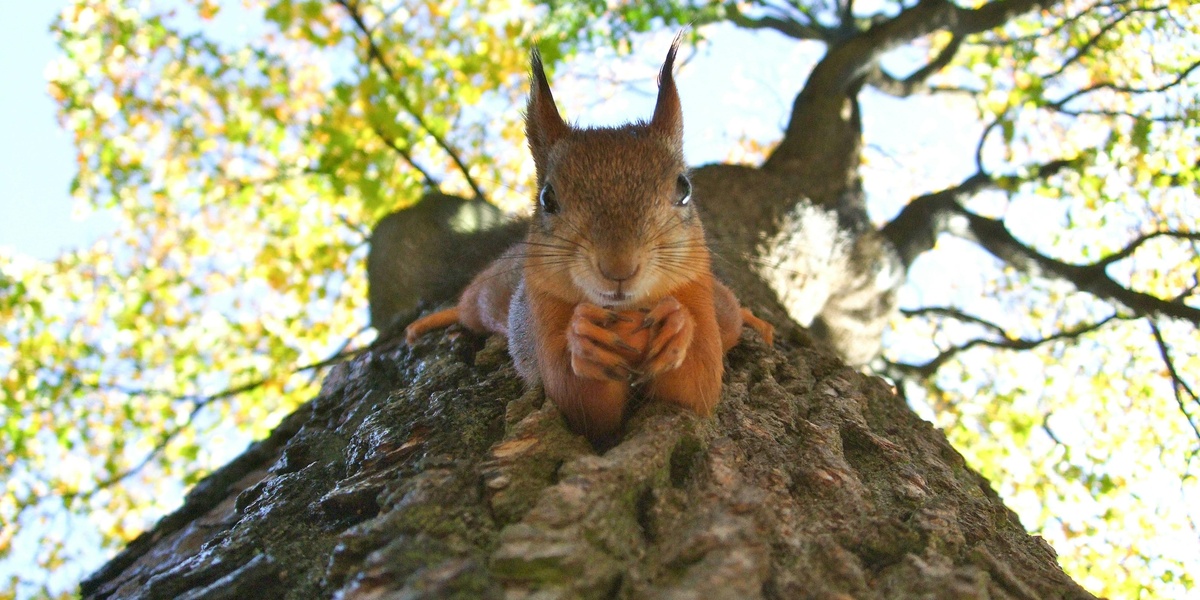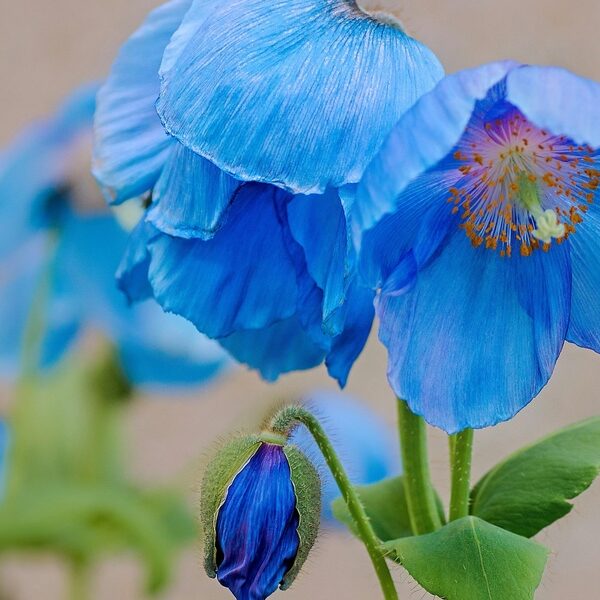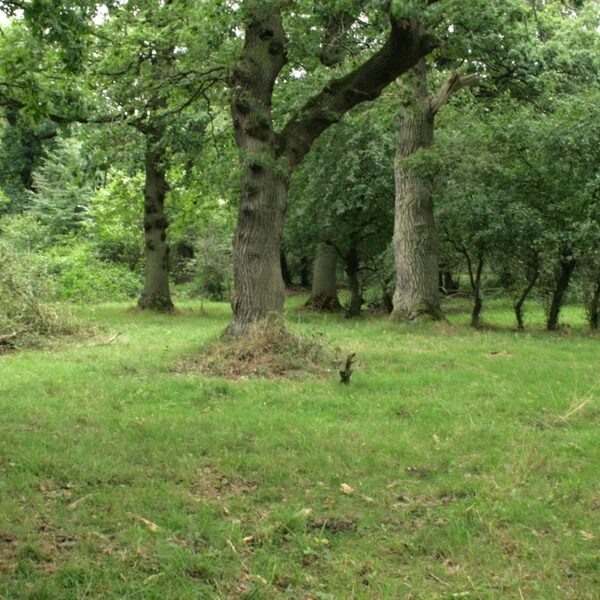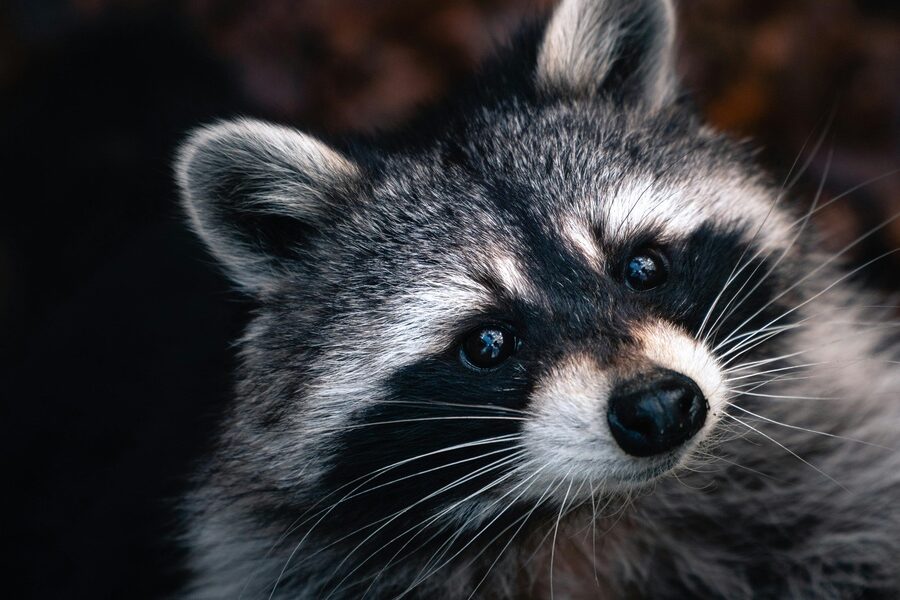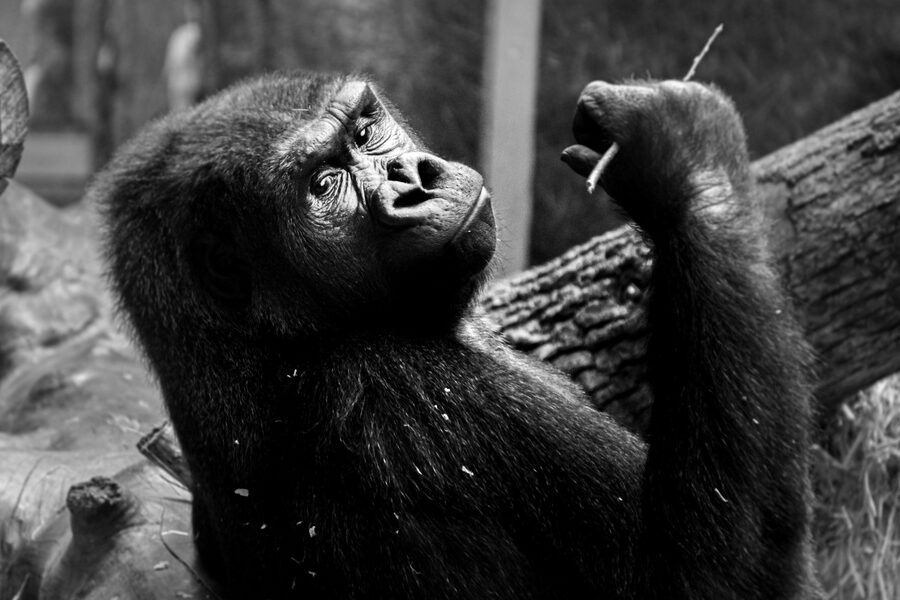Walk into a forest and you’ll notice more than birdsong and rustling leaves — the animals there often act in strangely delightful ways, from quirky feeding habits to odd poses. Spending time on a trail or at a clearing is a reminder that woodland wildlife can be as amusing as it is interesting.
There are 25 funny forest animals, ranging from Aye-aye to Verreaux’s sifaka; for each species you’ll find below Scientific name, Funny trait (max 15 words), Range / habitat — organized so you can scan traits and where to spot them, and then explore the entries you’ll find below.
Why do some forest animals behave in ways we find funny?
Many odd behaviors are practical: unusual foraging techniques, mating displays, or predator avoidance can look comical to us but help survival. For example, tapping, hopping, or exaggerated poses often serve a clear purpose even if they make the animal seem amusing.
Where can I observe the Aye-aye and Verreaux’s sifaka in the wild?
Both are native to Madagascar: the nocturnal Aye-aye is best seen on guided night walks in reserves like Andasibe or Kirindy, while Verreaux’s sifaka is active by day in dry and spiny forests, making daytime viewing on trails more likely.
Funny Forest Animals
| Common name | Scientific name | Funny trait (max 15 words) | Range / habitat |
|---|---|---|---|
| Red panda | Ailurus fulgens | Fluffy masked face and ringed tail | Eastern Himalayas, temperate bamboo forests |
| Giant panda | Ailuropoda melanoleuca | Playful clumsiness and bamboo munching antics | Central China, temperate bamboo forests |
| Raccoon | Procyon lotor | Masked face and dexterous “hands” | North America, deciduous and mixed forests |
| Eastern gray squirrel | Sciurus carolinensis | Acrobatic, expressive bushy-tailed antics | Eastern North America, deciduous forests |
| Eurasian red squirrel | Sciurus vulgaris | Ear tufts and dramatic tail flares | Europe and Asia, temperate coniferous forests |
| Brown-throated three-toed sloth | Bradypus variegatus | Perpetual smile and slow-motion antics | Central and South America, tropical rainforests |
| Hoffmann’s two-toed sloth | Choloepus hoffmanni | Goofy face and slow, deliberate movements | Central and South American rainforests |
| Proboscis monkey | Nasalis larvatus | Huge comical nose and potbelly gait | Borneo mangrove and riverine forests |
| Mandrill | Mandrillus sphinx | Ridiculously colorful face and rump | West-Central African rainforests |
| Golden snub-nosed monkey | Rhinopithecus roxellana | Blue face and upturned nose, theatrical fur | Central Chinese temperate forests |
| Aye-aye | Daubentonia madagascariensis | Spindly middle finger and wild eyes | Madagascar rainforests and dry forests |
| Common potoo | Nyctibius griseus | Perpetually stunned, wide-eyed night stare | Neotropical forests, perched deadwood |
| Tawny frogmouth | Podargus strigoides | Grumpy, wide-beaked “pouty” face | Australian woodlands and forests |
| Kea | Nestor notabilis | Mischievous, tool-using parrot with playful antics | New Zealand alpine and beech forests |
| Kakapo | Strigops habroptila | Flightless, owl-faced, clumsy ground waddler | New Zealand temperate forests |
| Bengal slow loris | Nycticebus bengalensis | Big eyes and frozen “puppy” stare | Southeast Asian forests |
| Ring-tailed lemur | Lemur catta | Expressive face and dramatic tail waving | Madagascar scrub and gallery forests |
| Verreaux’s sifaka | Propithecus verreauxi | Bipedal “dancing” sideways hops | Dry forests and spiny forests, Madagascar |
| Binturong | Arctictis binturong | Bearcat with prehensile tail and “smile” | Southeast Asian rainforests |
| South American coati | Nasua nasua | Long snout and playful group antics | Neotropical forests and woodlands |
| Capybara | Hydrochoerus hydrochaeris | Laid-back “giant guinea pig” social scenes | South American riverside forests and wetlands |
| Tufted capuchin | Sapajus apella | Expressive faces and clever pranks | Neotropical rainforests |
| Pygmy marmoset | Cebuella pygmaea | Tiny size and comedian-like expressions | Amazonian rainforests |
| Laughing kookaburra | Dacelo novaeguineae | Loud, human-like “laugh” call | Eastern Australia forests and woodlands |
| Chinese pangolin | Manis pentadactyla | Armored, curiously curled posture | South and Southeast Asian forests |
Images and Descriptions
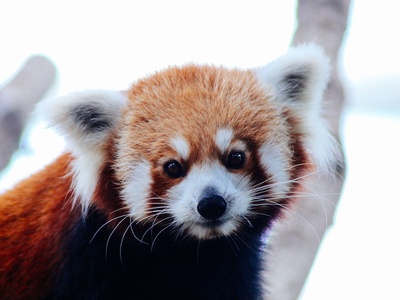
Red panda
Small, fox-like mammal with a perpetually surprised face and ringed tail that looks like a plush toy. Lives in bamboo forests high in the Himalayas. Agile climber, feeds on bamboo; named for its red fur and comical tree acrobatics.
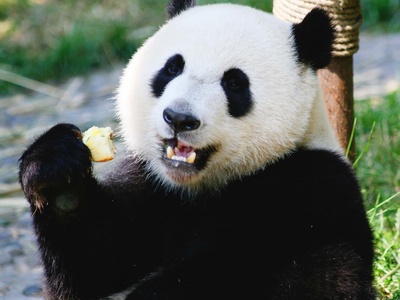
Giant panda
Iconic black-and-white bear famous for awkward rolling, playful tumbling, and clumsy bamboo eating that looks delightfully juvenile. Lives in cool bamboo forests of central China. Conservation symbol; spends up to 14 hours daily eating bamboo and tumbling between trees.

Raccoon
Curious night forager with a bandit mask and surprisingly nimble front paws that open containers and pose like a tiny burglar. Common in woodlands and forest edges; known for clever problem solving and comical postures while washing food.
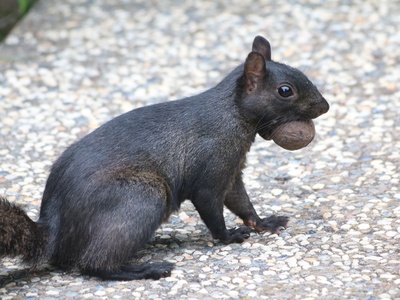
Eastern gray squirrel
Everyday acrobat of forest canopies, famous for dramatic leaps, expressive tail flicks and opportunistic food-stealing. Seen leaping along branches and freezing in comic poses. Keystone seed-disperser with bold, often comedic interactions around picnic areas.
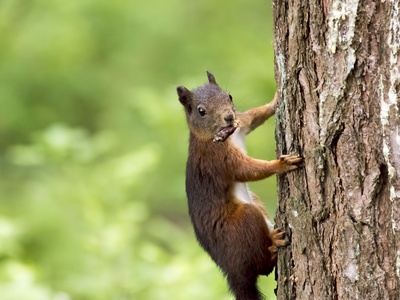
Eurasian red squirrel
Small tree squirrel with tufted ears and flamboyant tail bursts that make it look theatrical. Agile climber in conifer forests, it caches cones and often freezes in exaggerated poses that photographers love.
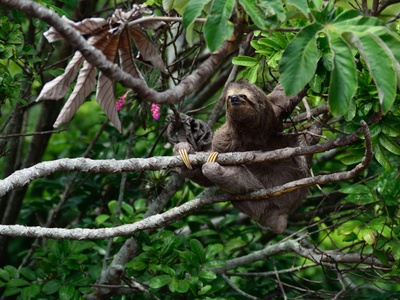
Brown-throated three-toed sloth
Slow-moving canopy specialist with a face that seems to grin and bizarrely slow antics that look comedic. Spends most time hanging upside down in rainforests, covered in algae; its slow pace is an effective energy-saving survival strategy.
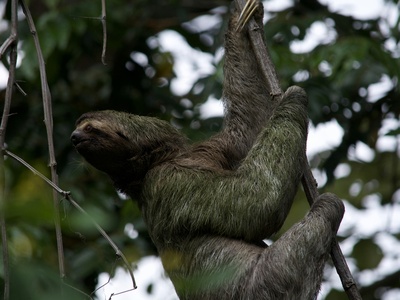
Hoffmann’s two-toed sloth
Chunkier sloth species with a calm, perpetually bemused expression and deliberate climbing style that amuses observers. Lives high in rainforest canopies, feeds on leaves, and often appears comically uninterested even when moving between branches.
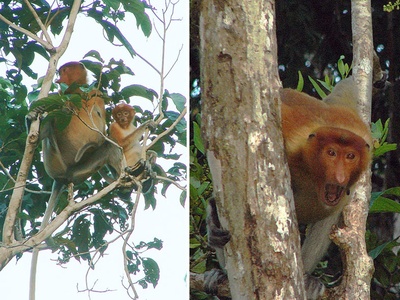
Proboscis monkey
Iconic Bornean primate with an enormous bulbous nose and expressive face that looks cartoonish. Lives in mangrove and riverine forests, moves with a waddling gait and is famed for striking facial expressions and loud calls.
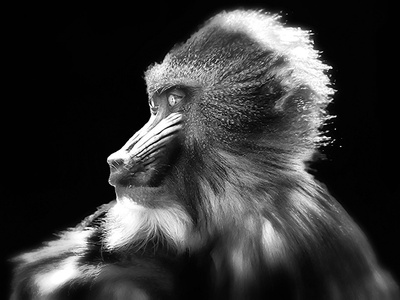
Mandrill
One of the most colorful mammals with neon face and rump that looks cartoonish. Lives in dense African rainforests, is highly social and expressive, and uses its vivid colors to communicate rank and attract mates — often appearing comically vibrant.
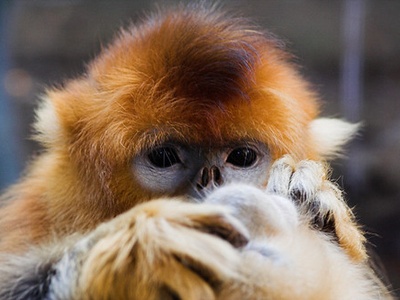
Golden snub-nosed monkey
Striking monkey with an upturned snub nose, blue face, and dramatic golden fur that looks theatrical. Lives in cool mountain forests of China; social groups and expressive faces have made it a favorite of photographers and viral wildlife posts.
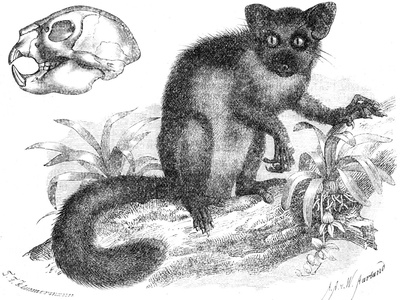
Aye-aye
Weird, nocturnal lemur with a long thin middle finger used for tapping and extracting grubs, giving it a spooky yet funny look. Lives in Madagascar forests; its bizarre foraging technique and appearance fuel many viral ‘odd animal’ posts.
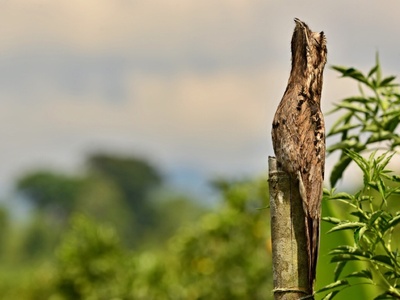
Common potoo
Nocturnal bird that freezes with a huge, gaping-eyed expression, perfectly camouflaged on branches — creating a forever-surprised look. Found in Neotropical forests; its comical posture and haunting call make it a meme favorite among bird photographers.
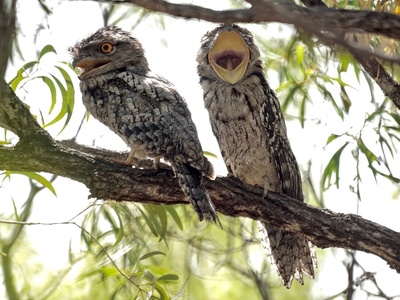
Tawny frogmouth
Cryptic night bird with a wide, flat beak and perpetually grumpy expression that looks like a pouty owl. Rocks motionless on branches in eucalypt forests and often becomes an internet favorite for its comically dour face.
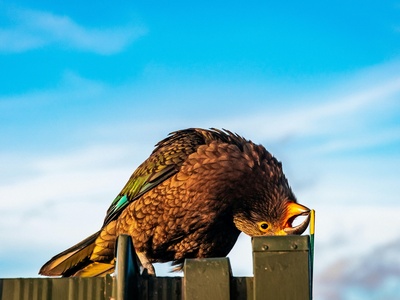
Kea
Inquisitive mountain parrot notorious for pranks: dismantling gear, stealing shiny objects, and comedic curiosity. Lives in beech and subalpine forests; celebrated for problem solving and playful interactions with humans that often go viral.
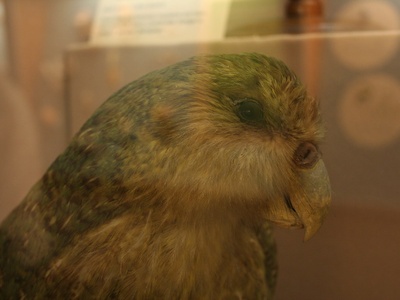
Kakapo
Unusual nocturnal parrot that walks and shuffles with a bulky, owl-like face — its clumsy ground behavior seems comic. Lives in native New Zealand forests; famed for endearing personalities and a conservation story involving intensive human-led protection.
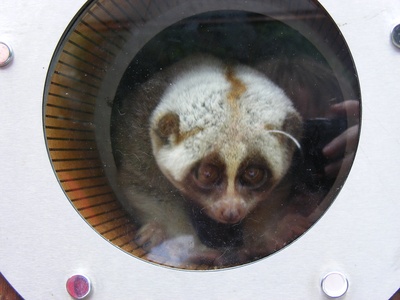
Bengal slow loris
Small nocturnal primate with enormous, reflective eyes and a plaintive face that looks irresistibly puppy-like. Moves cautiously in forest canopies; viral footage of its slow-motion expressions made it an internet favorite, though illegal pet trade harms populations.
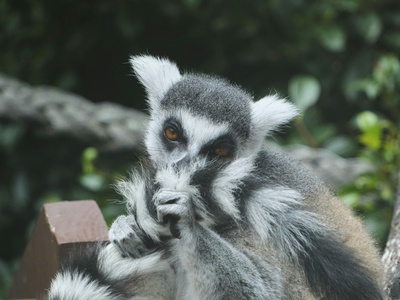
Ring-tailed lemur
Iconic lemur with bold facial markings and a long, ringed tail used in theatrical scent-waving and sun-basking poses that look comical. Lives in Malagasy forests; social, vocal, and often photographed in amusing group postures.
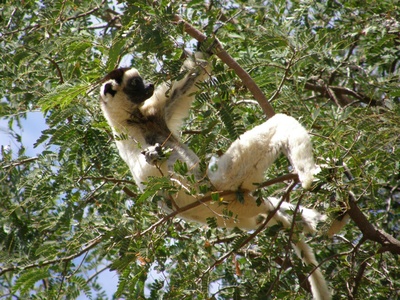
Verreaux’s sifaka
Lemur famous for upright, hopping sideways on its hind legs across open ground that looks like a comic dance. Inhabit dry and spiny forests of Madagascar; their theatrical locomotion is a viral favorite and effective on the ground.
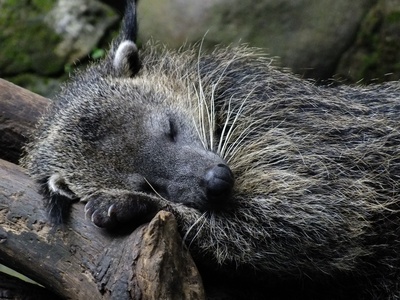
Binturong
Large, shaggy carnivore nicknamed ‘bearcat’ with a prehensile tail and often smiling-looking face. Lives in SE Asian forests, smells of popcorn from its scent glands, and climbs like a comically grinning tree-dweller.
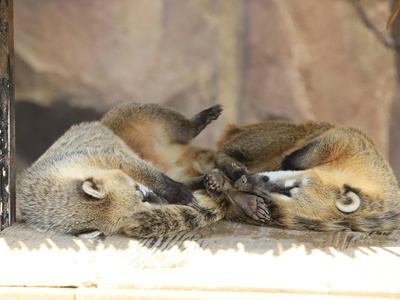
South American coati
Social, curious procyonid with a flexible snout and energetic foraging antics that look comical. Moves in daytime bands through forests, investigating campsites and showing bold, human-friendly behaviors that often make them viral wildlife stars.
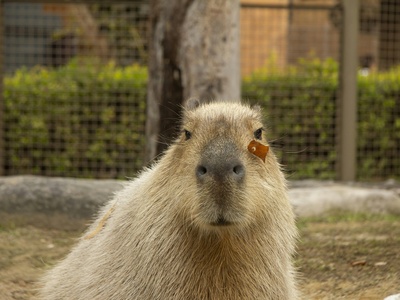
Capybara
Largest rodent, often photographed lounging with mixed-species companions, giving a calm, comedic vibe like a gigantic social guinea pig. Inhabits forested river margins; gregarious and unbothered, making them internet stars for relaxed group photos.
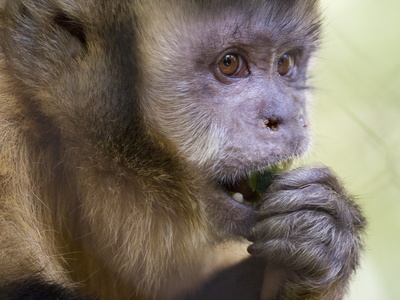
Tufted capuchin
Smart, mischievous New World monkey famous for expressive faces, tool use, and bold antics that look like deliberate jokes. Lives in rainforest canopies; their cheeky interactions and problem solving make them favorites in viral videos and park encounters.
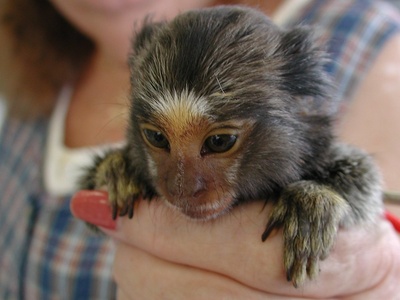
Pygmy marmoset
World’s smallest monkey, so tiny its facial expressions read like a caricature. Clings to thin branches in Amazonian canopies; its miniature size and bold curiosity make it a popular, funny subject for wildlife photographers and viral clips.
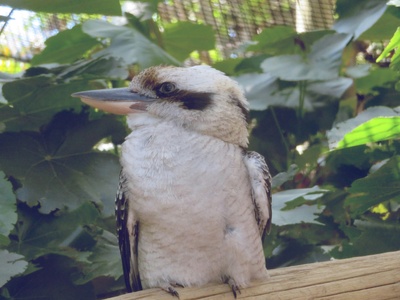
Laughing kookaburra
Large kingfisher with a raucous, human-like laugh used in territorial choruses, sounding like a comedy soundtrack of the bush. Common in eucalypt forests; its distinctive call is beloved and often used in film and meme soundtracks.
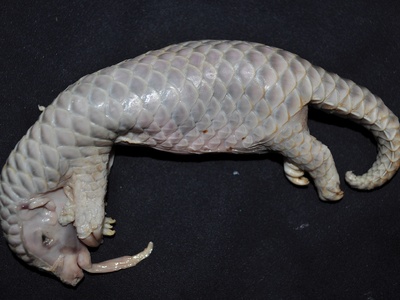
Chinese pangolin
Unique scaly mammal that rolls into a tight, comical ball when alarmed, creating an armored ‘tiny tank’ look. Found in Asian forests; their shy behavior and unusual armor lead to quirky photos and conservation-focused viral posts.
